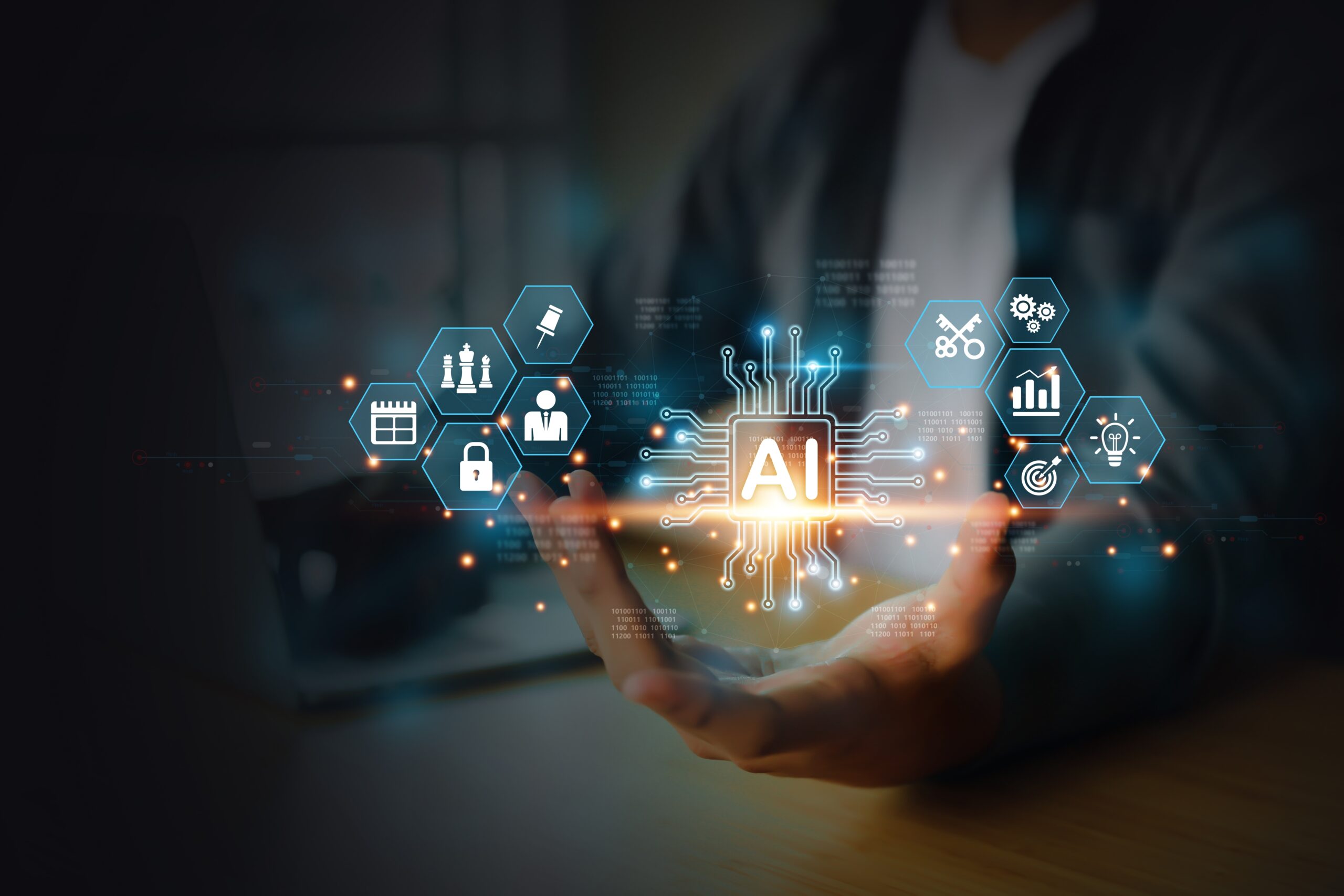How Will AI Make Work More Efficient?
In today’s rapidly evolving workplace landscape, the integration of artificial intelligence (AI) is revolutionizing how we work and collaborate. AI technologies offer unprecedented opportunities to streamline processes, automate repetitive tasks, and enhance productivity in various industries. From data analysis and customer service to project management and decision-making, AI-powered tools and algorithms are reshaping the way we approach work.
Moreover, AI holds the promise of making work more efficient by leveraging advanced algorithms and machine learning techniques to handle complex tasks with speed and accuracy. Furthermore, AI-enabled automation frees up human resources to focus on high-value activities, fostering innovation and creativity in the workplace. Additionally, AI-driven insights provide valuable data-driven recommendations, enabling organizations to make informed decisions and optimize performance.
As a matter of fact, the adoption of AI technologies is becoming increasingly prevalent across industries, with businesses recognizing the potential for cost savings, improved efficiency, and competitive advantage. In other words, AI is not only transforming individual workflows but also driving organizational growth and success. In this article, we will explore the various ways in which AI is making work more efficient, highlighting real-world examples and best practices for harnessing the power of AI at work.
How Will AI Make Work More Efficient?
AI is reshaping the future of work by maximizing efficiency and productivity across industries. By leveraging AI technologies, organizations can automate routine tasks, enhance decision-making, improve customer service, optimize workflows, and boost overall productivity. As AI continues to advance, its impact on the workplace will only grow, offering new possibilities for organizations to thrive in the digital age.
Maximizing Efficiency with AI
Artificial Intelligence is revolutionizing the modern workplace, offering innovative solutions to enhance efficiency and streamline operations across industries. From automating routine tasks to providing data-driven insights, AI technologies are transforming the way we work.
Automating Routine Tasks
One of the key benefits of AI in the workplace is its ability to automate routine tasks, freeing up valuable time for employees to focus on more strategic activities. AI-powered tools can handle repetitive processes such as data entry, scheduling, and document management, allowing workers to allocate their time and energy towards tasks that require human judgment and creativity.
Enhancing Decision-Making
AI-driven analytics and algorithms provide organizations with valuable insights that enable data-driven decision-making. By analyzing large datasets and identifying patterns, AI can help businesses uncover hidden opportunities, mitigate risks, and optimize processes. Whether it’s forecasting demand, identifying market trends, or personalizing customer experiences, AI empowers organizations to make informed decisions quickly and confidently.
Improving Customer Service
AI technologies are revolutionizing customer service by providing personalized and efficient interactions. Chatbots powered by natural language processing (NLP) can handle customer inquiries and resolve issues in real-time, significantly reducing response times and enhancing customer satisfaction. Moreover, AI-driven sentiment analysis tools enable organizations to gauge customer feedback and sentiment, allowing them to proactively address issues and improve the overall customer experience.
Optimizing Workflows
AI-powered workflow optimization tools help streamline processes and improve efficiency throughout the organization. By analyzing workflows and identifying bottlenecks, AI algorithms can suggest optimizations and automate repetitive tasks, resulting in smoother operations and faster turnaround times. Furthermore, AI-driven project management platforms facilitate collaboration and communication among team members, ensuring projects stay on track and deadlines are met.
Boosting Productivity
Overall, the integration of AI in the workplace leads to a significant boost in productivity and performance. By automating routine tasks, providing data-driven insights, and optimizing workflows, AI empowers employees to work more efficiently and effectively. Moreover, AI technologies continue to evolve, offering new capabilities and opportunities for organizations to drive innovation and stay ahead of the competition.
What AI Can’t Do at Work
While AI technologies offer numerous benefits in the workplace, there are certain tasks and functions that AI is unable to perform, at least for now, the near future, and possibly forever. It’s important to recognize the limitations of AI and understand where human intervention remains crucial.
Complex Decision-Making
While AI excels at analyzing data and providing insights, it lacks the ability to make complex decisions that require human judgment and intuition. Complex decision-making often involves weighing multiple factors, considering ethical implications, and understanding nuanced contexts, areas where human intelligence still reigns supreme.
Creativity and Innovation
AI technologies can assist in creative tasks such as generating design options or composing music, but they cannot replicate the depth and originality of human creativity. The ability to think outside the box, envision new possibilities, and innovate is a uniquely human trait that AI struggles to emulate.
Emotional Intelligence
Despite advancements in natural language processing and sentiment analysis, AI still struggles to comprehend and respond to human emotions accurately. Emotional intelligence, including empathy, compassion, and interpersonal skills, remains a distinctively human trait that is essential in many workplace scenarios, such as customer service, conflict resolution, and leadership.
Ethical and Moral Decision-Making
AI algorithms operate based on predefined rules and objectives, lacking the capacity for moral reasoning and ethical judgment. In complex situations where ethical considerations are paramount, human intervention is necessary to navigate moral dilemmas, ensure fairness, and uphold ethical standards.
Adaptability and Flexibility
While AI excels at performing specific tasks within predefined parameters, it struggles in dynamic and unpredictable environments that require adaptability and flexibility. Human workers possess the ability to learn new skills, adapt to changing circumstances, and creatively solve problems in real-time, qualities that are challenging to replicate in AI systems.
Job Creation
Contrary to popular belief, the widespread adoption of AI is expected to create new job opportunities rather than eliminate existing ones. While AI may automate certain tasks, it also generates demand for new roles in AI development, data analysis, cybersecurity, and other emerging fields. Moreover, AI augments human capabilities, allowing workers to focus on higher-value tasks that require creativity, critical thinking, and emotional intelligence.
Final Thoughts
In conclusion, the integration of AI into the workplace represents a transformative shift that holds immense potential for organizations across various industries. By leveraging AI technologies effectively, businesses can streamline operations, improve decision-making, and drive innovation to unprecedented levels. Moreover, AI enables employees to focus on high-value tasks that require human creativity, emotional intelligence, and critical thinking skills, fostering a more engaging and fulfilling work environment.
Furthermore, while AI brings about significant benefits, it is essential to approach its implementation thoughtfully and ethically. Organizations must prioritize transparency, accountability, and fairness in AI systems to mitigate potential risks and ensure alignment with ethical standards. Additionally, fostering a culture of continuous learning and upskilling will empower employees to adapt to the evolving workplace dynamics and harness the full potential of AI technologies.
Additionally, the widespread adoption of AI is poised to create new opportunities for job creation and economic growth. Rather than displacing human workers, AI complements their abilities, opening doors to new roles and industries. By embracing AI as a tool for augmentation rather than replacement, organizations can unlock new avenues for innovation and competitive advantage in the digital era.
AI’s integration into the workforce represents a paradigm shift with far-reaching implications. By embracing AI technologies strategically and fostering a collaborative human-AI ecosystem, organizations can navigate the complexities of the modern business landscape and drive sustained success in the age of AI at work.
Sources And Further Reading:
Harvard Business Review, “Boost Your Productivity with Generative AI”
Forbes, “Yes, AI Increases Productivity, Study Suggests”
MITSloan Management Review, “What Machines Can’t Do (Yet) in Real Work Settings”
WIRED, “Here’s the Things AI Just Can’t Do”
Written with Support from ChatGPT by OpenAI
Photo Credit: Noin90650/shutterstock.com

